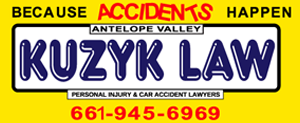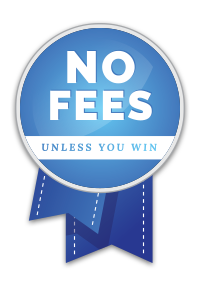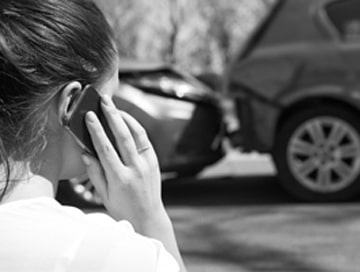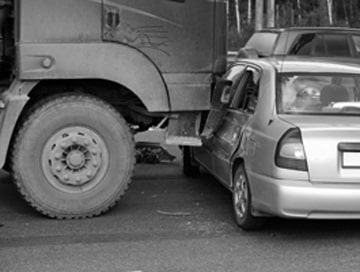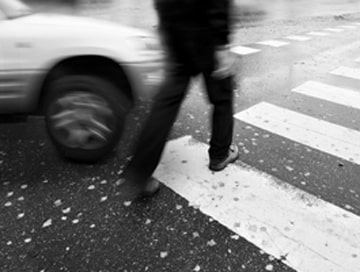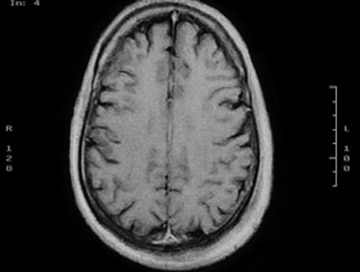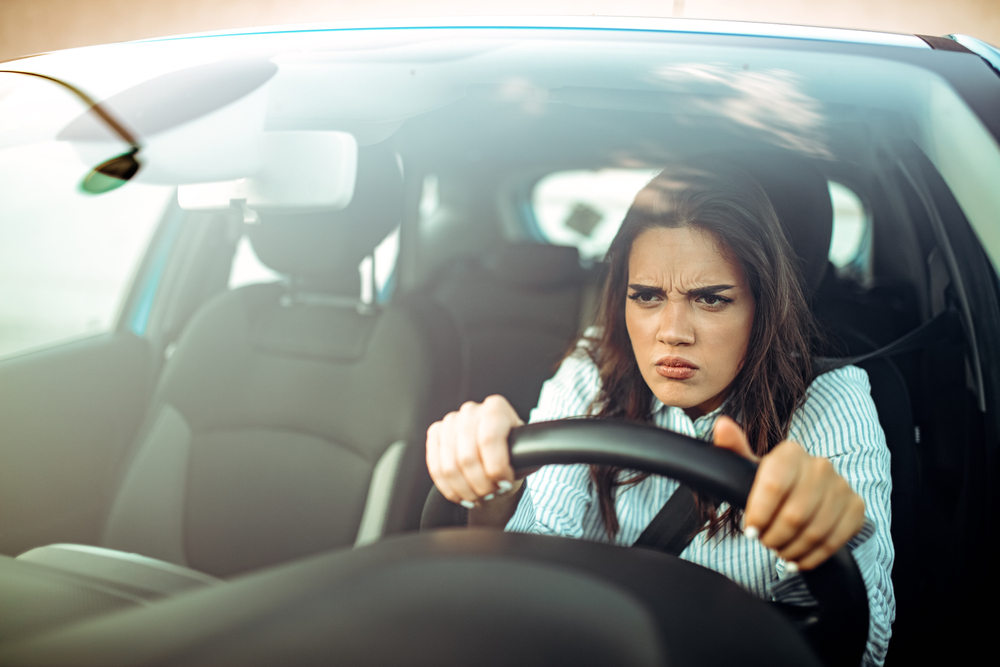
When we see someone driving recklessly, it’s natural to be outraged and alarmed at their inconsiderate and potentially dangerous behavior. The major escalation of this understandable reaction is commonly referred to as road rage.
Road rage can manifest itself in many ways — furiously honking the horn, angrily confronting other drivers once they’ve parked, and even tailgating in revenge. Some drivers are less aggressive when they experience road rage, but they’ll still find themselves stewing over one incident for the rest of their drive.
Road rage can be dangerous for the driver experiencing it and everyone else on the road. That’s why it’s crucial to find ways to manage your road rage, no matter how it may manifest for you. For your convenience, we’ve gathered 10 essential tips for effectively managing your road rage:
1. Don’t Drive When Emotions Are High
Distracted driving is one of the most common causes of auto-accidents. Though most people correctly associate drinking, eating, calling, and texting with distracted driving, the emotional state of the driver can also qualify as a potentially dangerous distraction. Driving when you’re angry, upset, or extremely stressed out can make you more prone to road rage. As a result, you’re more likely to cause or get into an accident.
Managing your road rage will be much easier if you choose not to drive when you’re in a vulnerable state. If you’re going through a hard time, consider taking public transportation or asking a loved one for a ride. Or, if you receive bad news or become upset while en route, pull over and give yourself time to calm down before deciding whether or not it’s safe for you to keep driving.
2. Acknowledge Other Perspectives
When we’re feeling overwhelmed or angered by somebody else’s actions, we often fail to see things from their perspective. We’re all guilty of doing this, as it’s certainly not a phenomenon exclusive to road rage.
If you feel yourself on the brink of road rage, take a moment to acknowledge the other driver’s perspective. Could they have just made a simple mistake, totally unintentionally? Could you have somehow accidentally facilitated the driver’s actions? Maybe another driver put them in a difficult position that forced them to change lanes at a bad time?
There are plenty of alternatives to just letting yourself believe that another driver truly intended to upset or hurt you. Acknowledging other perspectives isn’t typically our first impulse, but doing so will definitely help you manage your road rage.
3. Accept What You Can’t Change
When experiencing road rage, you may find yourself replaying a fantasy in your head where you tell another driver that their actions were reckless and/or inconsiderate, and they apologize sheepishly in response. Or maybe you opt for honking and tailgating them, which in turn makes them realize how their driving affects others.
No matter which method you choose, your attempts to change other drivers’ behavior will be in vain. There’s simply no way of doing this that’s safe or effective, especially when operating a vehicle. Even if there was, it’s not your responsibility, and accepting this reality will help you manage your road rage.
Understanding this boundary is also essential if another driver’s reckless behavior actually causes you to get in an accident. In this scenario, it’s important to remain calm and not act out in aggression. If you’ve been injured, a personal injury attorney will ensure that you get the justice and compensation you deserve.
It isn’t your responsibility to punish other drivers or to find a way to hold them accountable for their actions. As tempting as that idea may seem, accepting that you can’t change another driver’s behavior should eventually come as a relief. At the end of the day, your focus should be on whether or not you’re driving in a way that promotes the safety of yourself, your fellow drivers, and pedestrians.
4. Take Deep Breaths
Taking a few deep breaths will go a long way in bringing you back down to Earth when your emotions start taking over. It may seem cliche, but there’s a reason why this is one of the most common suggestions for anyone trying to calm themselves down. Deep breathing essentially tricks the brain into thinking that you’re calm, which in turn will help you feel much more relaxed.
Taking a few minutes for this exercise will help you manage your road rage in a few other ways. By focusing on your breath, you begin to feel more connected to your body. As a result, you become less wrapped up in all the thoughts and feelings rushing through your head. You’re also increasing your brain’s oxygen supply, which stimulates the parasympathetic nervous system and helps you reach a state of calmness.
Actively choosing to stop and breathe will also prevent you from acting impulsively. This is very important, as giving in to your temptations to honk your horn or use a crude hand gesture will only needlessly escalate the situation.
5. Be Forgiving
This falls somewhat under acknowledging the perspective of others, but it’s really more of a change in mindset. Those who are more prone to high stress and anxiety may find themselves becoming more sensitive and defensive with others. We can become so wrapped up in our own emotions that we forget to consider the humanity of the people around us.
When another driver behaves in a way that upsets you, try to avoid telling yourself that they did so on purpose or with nefarious intentions. Instead, actively choose to be empathetic and forgiving to strangers that have inconvenienced you. This change in mindset will take time, but it’s essential to effectively managing road rage.
Remember, for all you know, someone could be driving home from the hospital or a loved one’s funeral. Maybe they’re experiencing some other intense, life-altering event. Of course, sometimes people are just willfully inconsiderate, but you’ll really never know for sure. Why not choose to believe that people aren’t actively trying to make your life more stressful?
6. Leave Early
When possible, give yourself lots of time to get where you need to go. You’re much more likely to experience road rage at someone cutting you off or driving too slow if you’re already a few minutes late for work or an appointment. When you’re in a hurry, you feel stressed — and the minor infractions of other drivers will seem much more severe.
Leaving earlier than usual may not be entirely possible for you depending on your job, lifestyle, or location. That said, if you do struggle with road rage, it’s definitely worth challenging yourself to leave a bit earlier. You may be surprised to find that you’re in a more forgiving mood!
7. Remove Yourself from the Situation
Road rage is a lot harder to manage when the driver you’re mad at is driving in the same direction as you. If you struggle with road rage and are unable to let go of your anger toward other drivers, it may be necessary to take an alternate route or temporarily pull over until the other driver is out of sight.
Removing yourself from a situation that is overwhelming you emotionally is the responsible thing to do. The reason? If you’re angry at another driver, you may find yourself looking their way and becoming needlessly distracted by them when you need to focus on driving. Avoiding distractions like these are crucial to preventing accidents on the road, so be conscious of whether or not you’re able to manage your road rage successfully with the offending driver still nearby. If you’re not, simply turn off at the next opportunity. You may find that the “out of sight, out of mind” idiom successfully applies to managing your road rage.
8. Take Appropriate Action
It’s true that you can’t change the behavior of other drivers, especially when you need to focus on operating your own vehicle. This can lead to feelings of frustration and powerlessness, which you may experience as road rage. However, there are ways to channel these moments into something more productive.
Though removing yourself from driving situations that are causing you distress is sometimes necessary, you should also know when to take action and report another driver. If you’re worried that a driver may be intoxicated or otherwise driving in a way that may endanger themselves or others, take appropriate action and call the police.
Calling the authorities is required in some situations to keep pedestrians and your fellow drivers safe, but this isn’t a decision you should take lightly. Minor infractions, like cutting you off, or just “seeming suspicious” are not justifiable reasons for calling the police. Before contacting anyone, be sure to take a moment to calm yourself down and ensure that you’re not acting out of emotion. If you do decide that calling the police is necessary to ensure the safety of the driver and everyone else on the road, pull over to make your call calmly and thoughtfully.
9. Know the Dangers
You may have an easier time managing your road rage if you know what’s at stake. Road rage, similar to distracted driving and impaired driving, is regularly linked to car accidents. According to data from the National Highway Traffic Safety Administration, driver error is the cause of 94% of all traffic accidents. An estimated 33% of these accidents occur when drivers behave in a way that’s associated with road rage, such as illegal maneuvering.
Recognizing these dangers will help you put things into perspective when you cross paths with an inconsiderate driver. Is their behavior really worth getting mad over? Is it worth putting yourself and everyone else on the road at risk? As aggravating as some people can be, try to actively remind yourself to focus on driving responsibly.
10. Seek Professional Help
If you’re unable to control your road rage or struggle with high stress and anxiety in general, it may be necessary to seek professional help. Experiencing a bit of road rage now and then is natural, but it shouldn’t be a regular part of your commute. If the previous nine tips have little effect on you, that might be a sign that your road rage stems from something deeper.
Many people become resistant to the idea of seeking help from a doctor or a therapist. As a result, unfortunately, many miss out on professional care that could change their lives for the better. Of course, it isn’t just your life that could be affected.
The Office of Traffic Safety reported 3,563 traffic fatalities in California alone for 2018, with 204 of those fatalities being teenagers, 893 being pedestrians, and 155 being bicyclists. When people lose control of their emotions and start driving erratically, they put more than just themselves at risk. They often become just like the inconsiderate drivers that caused their road rage in the first place.
Been in an Accident? Contact Kuzyk Personal Injury & Car Accidents Lawyers
Remaining calm and being tolerant of other drivers on the road doesn’t mean you should let people get away with causing you harm. If you’ve sustained an injury of any kind in an accident caused by another driver’s recklessness, please reach out to our team here at Kuzyk Personal Injury & Car Accidents Lawyers. We’ve successfully settled over 100,000 cases for people throughout LA and the surrounding areas since our founding in 1971 and have no plans of stopping any time soon.You can reach us by phone at 661-945-6969, email at help@kuzyklaw.com, or through our online form. We offer free professional consultations, so please don’t hesitate to give us a call. With over 40 years of experience in helping people get compensation for these kinds of accidents, you can count on our attorneys to get you the justice you deserve.
